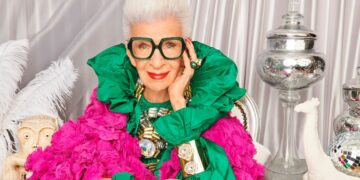Attempting to silence Yamiche Alcindor, a Black female reporter, President Donald Trump then angrily demeaned the reporter on Friday when she pressed him on rising unemployment figures for Asian and Black workers.
.@Yamiche: "Black unemployment went up by 0.1%, Asian American unemployment went up by 0.5% how is that a victory?"
— PBS NewsHour (@NewsHour) June 5, 2020
President Trump: "You are something else." pic.twitter.com/1B5IqBNzWz
In a Rose Garden statement, the put-down occurred after Trump crowed about a better-than-expected 13.3% unemployment figure for the nation in May.
The president outrageously claimed that it was a “great day” for George Floyd — the Black man a white police officer killed last month in Minneapolis — because he would be pleased “looking down” at the jobs stats.
White unemployment fell from 14.2% to 12.4% in May, the jobless rate for Black and Asian workers increased slightly. Black unemployment rose from 16.7% to 16.8%.
Working for PBS, Alcindor asked the president to explain how he plans to address systemic racism in the country, he held a finger to his lips, then seconds later said: “A strong economy.”
When she asked how worsening jobless figures for Asians and Blacks were “a victory,” as Trump had claimed, he shook his head angrily and told her: “You are something else.”
My question to President Trump just now: Why haven’t you laid out a plan to address systemic racism? What is the plan?
— Yamiche Alcindor (@Yamiche) June 5, 2020
His response: A strong economy.
Trump’s dismissive attitude toward Alcindor — and the issues she raised — only amplified the cause of the anti-racism protests riveting the nation.
The gap in the job stats is significant. Economists fear that COVID-19, which has already claimed a disproportionate number of Black lives, could destroy hard-fought job gains over the last decade.
“The thing that disturbs me is how much longer it will take them to make up the gap,” Jared Bernstein, a fellow at the Center on Budget and Policy Priorities and member of former President Barack Obama’s economic team, told CNBC.
Trump’s Rose Garden appearance had been billed as a press conference, but he instead made a short speech and refused to take questions from the press.
Chairs for the media were initially spaced six feet apart to comply with guidelines by the Centers for Disease Control and Prevention to help prevent the spread of COVID-19. But they were then moved close together because it “looks better,” the White House press office said.
Jonathan Karl of ABC News, president of the White House Correspondents’ Association, complained that reporters were put at risk to serve as a “prop” for a press conference that wasn’t.







